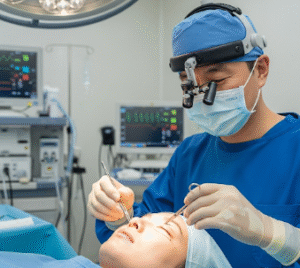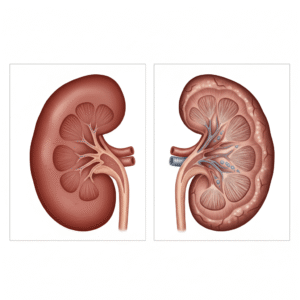Overview
Preparing for surgery is a critical step to ensure safety, minimize complications, and promote faster recovery. Proper preparation involves physical, mental, and logistical readiness before undergoing any surgical procedure, whether minor or major.
South Korea is recognized for highly organized preoperative protocols, advanced surgical facilities, and experienced multidisciplinary teams, ensuring patients are fully prepared for optimal surgical outcomes.
What is Preparing for Surgery?
Preparing for surgery involves assessing your health, understanding the procedure, and taking necessary precautions to ensure the operation is safe and effective. Key aspects include:
✔ Medical assessment: Evaluates overall health and identifies potential risks.
➔ Preoperative testing: Blood tests, imaging, ECG, and other diagnostics as needed.
● Medication management: Adjusting or temporarily stopping certain medications.
★ Patient education: Understanding the procedure, anesthesia, and post-op care.
Proper preparation helps reduce surgical complications, speed up recovery, and improve overall surgical outcomes.
What are the Benefits?
Effective surgical preparation offers several advantages:
✔ Reduces risk of infection and surgical complications.
➔ Optimizes anesthesia safety through careful evaluation.
● Improves recovery time and post-operative outcomes.
★ Enhances patient confidence and reduces anxiety.
➤ Ensures coordinated care among the surgical team, patient, and family.
Procedure Details
1) How should I prepare for Surgery?
Key steps to prepare include:
✔ Medical evaluation: Consult your surgeon and undergo necessary blood tests, imaging, and ECG.
➔ Medication review: Disclose all medications, supplements, and herbal remedies.
● Lifestyle adjustments: Stop smoking, reduce alcohol intake, and maintain a healthy diet.
★ Weight management: For some surgeries, optimizing weight improves safety and outcomes.
➤ Vaccinations: Ensure all necessary vaccinations are up to date, especially for immunocompromised patients.
2) What happens during the preoperative process?
During the pre-op phase, your care team ensures readiness:
✔ Preoperative assessment: Nurse or anesthesiologist reviews your health history and current condition.
➔ Fasting instructions: Usually 6–8 hours before surgery; water may be allowed.
● Anesthesia consultation: Discuss anesthesia type, risks, and monitoring.
★ Pre-surgery education: Guidance on wound care, post-op mobility, and pain management.
➤ Consent: Sign informed consent forms acknowledging understanding of procedure, risks, and recovery.
3) What happens after preparation but before surgery?
Immediately before surgery, several steps ensure safety:
✔ Final checks: Verify patient identity, procedure, and surgical site.
➔ Vital signs monitoring: Blood pressure, heart rate, oxygen saturation.
● IV line placement: For fluids, medications, and anesthesia delivery.
★ Patient support: Family or caregiver guidance, reassurance, and transport to the OR.
➤ Marking surgical site: Ensures accuracy and reduces risk of wrong-site surgery.
Risks / Benefits
Possible Risks if Not Properly Prepared:
✔ Increased risk of infection or complications
➔ Adverse reactions to anesthesia
● Delayed wound healing
★ Prolonged recovery or hospital stay
➤ Higher chance of surgical errors
Major Benefits of Proper Preparation:
✔ Reduced risk of surgical and anesthesia-related complications
➔ Faster recovery and shorter hospital stay
● Better pain management and wound healing
★ Increased confidence and reduced anxiety before surgery
➤ Improved overall surgical outcomes and satisfaction
Recovery and Outlook
✔ Immediate recovery: Being well-prepared ensures smoother anesthesia and surgical procedure.
➔ Postoperative care: Knowledge of recovery instructions improves adherence.
● Reduced complications: Prepared patients experience fewer infections, bleeding, or other complications.
★ Enhanced healing: Proper nutrition, medication management, and physical readiness accelerate recovery.
➤ Long-term outcome: Patients with thorough preoperative preparation generally achieve optimal surgical success and quality of life.
When To Call the Doctor
Contact your doctor immediately if you notice:
✔ Sudden illness or fever before surgery
➔ Unexpected reactions to preoperative medications
● Concerns about fasting or anesthesia risks
★ New or worsening chronic conditions
➤ Questions about surgical consent or procedure clarification
Best Korea Option / Process
South Korea provides comprehensive surgical preparation protocols with:
✔ Leading hospitals: Samsung Medical Center, Asan Medical Center, Seoul National University Hospital.
➔ Dedicated preoperative clinics: Complete evaluation, testing, and patient counseling.
● Experienced surgical teams: Surgeons, anesthesiologists, and nurses coordinate care.
★ Patient-centered approach: Education, translation, and personalized preparation plans.
➤ Medical tourism support: Travel coordination, pre-op assessment, and continuity of care for international patients.
✅ Highlights:
✔ Proper surgical preparation reduces risk and improves outcomes
➔ Includes medical assessment, fasting, medication management, and patient education
● Optimizes anesthesia safety and recovery time
★ Reduces complications and enhances patient confidence
➤ Korean hospitals provide structured preoperative care and expert guidance













